
Due to the massive development of Instagram, we decided to see how the development shows in an old analysis or if it shows at all. This article was originally written on October 9th, 2014. Now three years later, we will travel in time to find out how B2B brands use Instagram today.
Back in 2014 we wrote that it seemed like some B2B brands had difficulties to adapt Instagram as part of their marketing strategy, due to lack of existing visual content. That is not the impression in 2017, quite the opposite. These B2B brands have mastered to showcase their products and services in a very creative and fun way.
The 10 brands chosen for the original analysis represent the variety of the B2B markets with a technological focus on them. The original analysis wanted to emphasise what businesses can learn from benchmarking and analyzing. On this update we wanted to keep the same approach, but compare the 2014 findings to what our analysis shows now in 2017.
For this purpose we used the original graphs from back then, showing the latest data in our new version of quintly that will be released in December 2017.
B2B Content Analysis on Instagram
In 2014 images were almost the only content that the chosen B2B brands posted on Instagram. Since then, Instagram has introduced a new post type, the carousel feature, which allows to upload multiple images or videos in one post.
The amount of images seems odd in the perspective of 2017, as the video feature for Instagram was launched a year before the 2014 analysis, in June 2013.
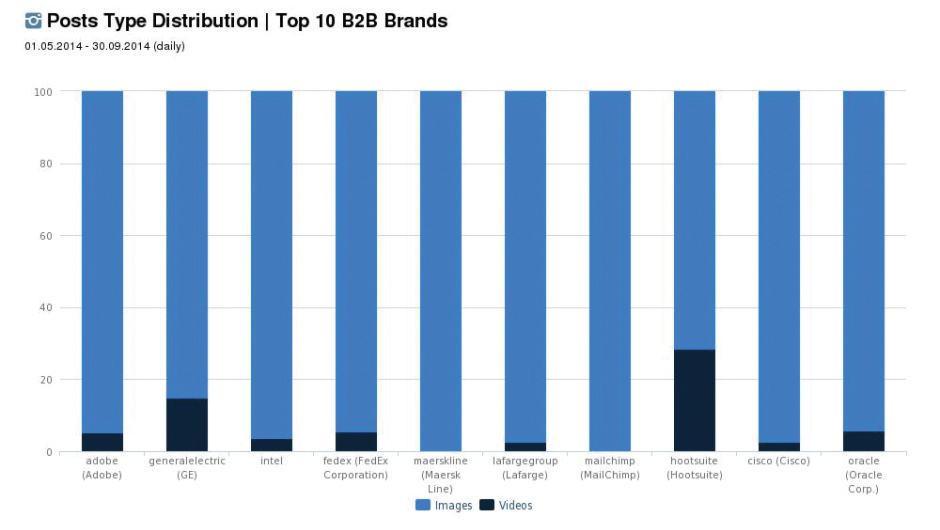
A good mixture of different post types keep the business account interesting. Fedex is the only B2B brand to only upload images in 2017. The rest of the businesses include videos at least 14% of their content and Mailchimp uses videos as much as 42% of their Instagram content. Mailchimp has mastered the usage of videos and their fun content engage their followers. The following post by Mailchimp created the highest interaction in our analysis made in 2017.
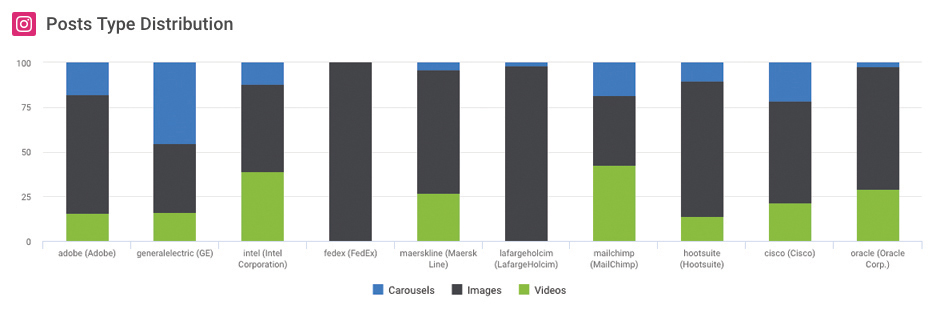
The Instagram carousel-uploads serve a good alternative for videos on Instagram. Uploading multiple images is cheaper and less time consuming than producing a good quality video and they can create higher interaction than photos. General Electrics have especially adapted the carousel uploads into their Instagram strategy. Over 45 % of the Instagram posts, during the past 6 months, are carousel-uploads.
Gone Are the Days of Filters
Back in the days, seven out of the ten B2B brands of our analysis used filters in their Instagram posts. Now only four brands use filters, and three of them only use them less than 10% of their uploads. Basically only Lafarge Group is the only one who is still using filters to a larger extent.
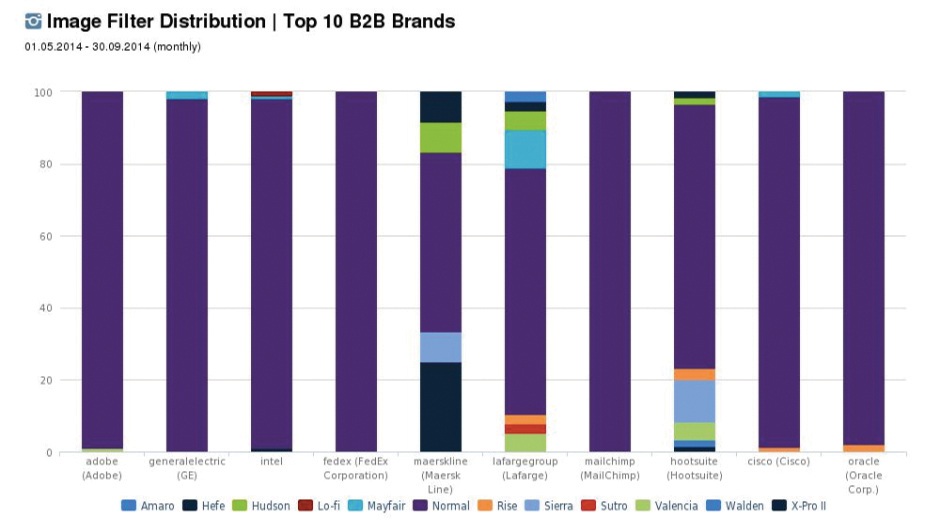
As Instagram has developed, so has the quality of the content that businesses upload into it. B2B brands have really put an effort into their Instagram accounts and the photos and videos that are uploaded into the service are usually edited in beforehand.
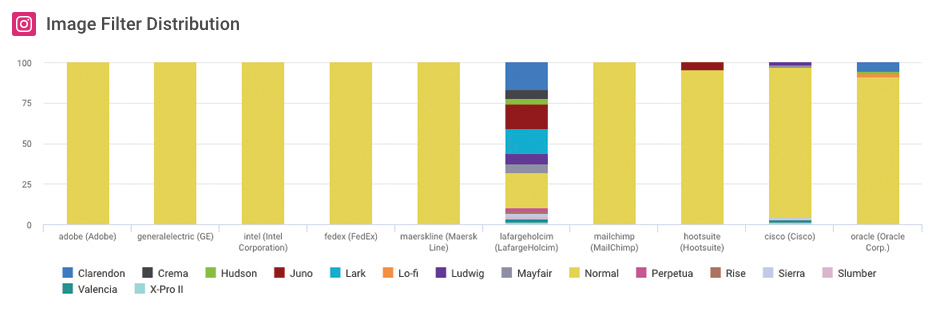
Content on Instagram is becoming very polished. Behind-the-scenes content can now more often be seen in Stories, while photos that end up in the stream tend to show higher quality. Businesses put effort to the overall look of the feed and therefore the posts are often edited to have similar tones, so that a company feed is a whole.
How Much to Post and When
When this analysis was made in 2014, our selected B2B brands were posting a lot more than they are now.
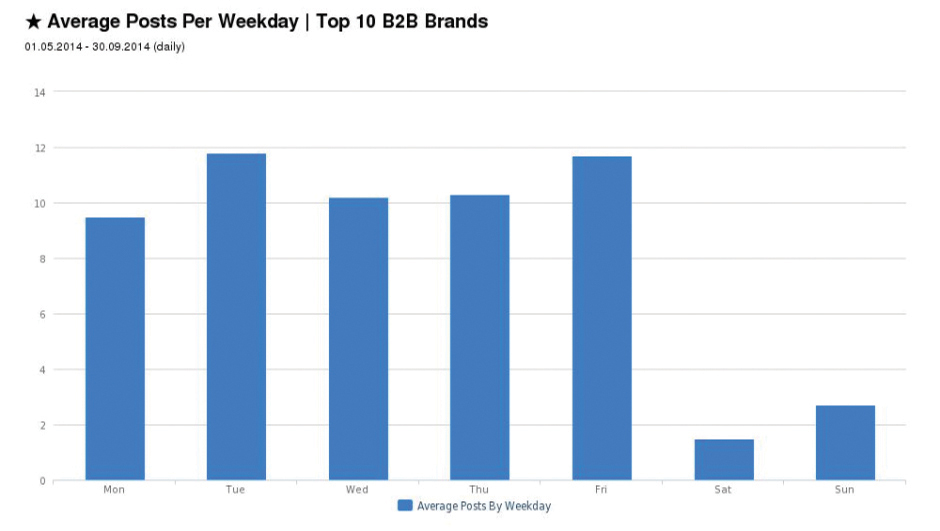
As Instagram has grown, so has the amount of Average Posts per Week. B2B brands seem to have found a better posting rhythm.

Posting more frequently and focusing on the traditional office days seems to be working for the B2B brands on Instagram. In 2014 the afternoons from Monday to Friday have created the most interaction for the B2B companies.
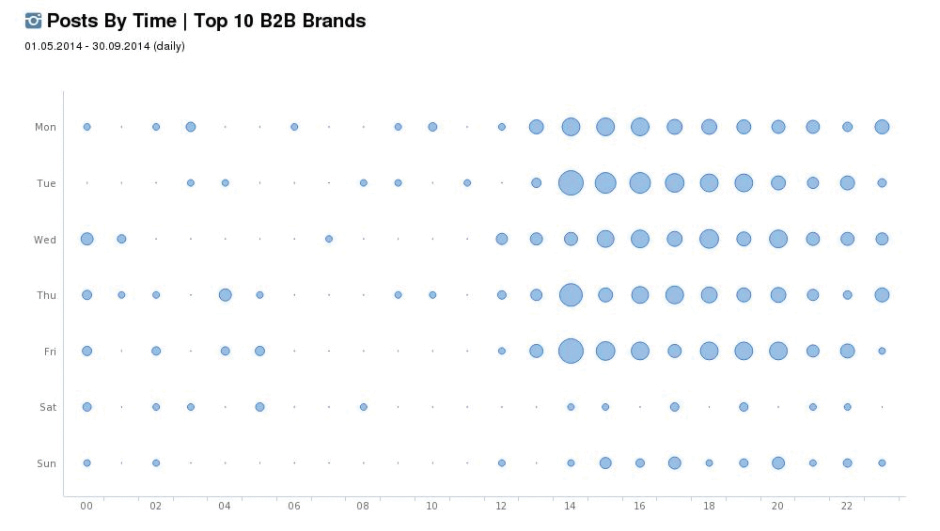
Time has not really changed the best time to post on Instagram. It is interesting how the most efficient time to post is almost identical in 2017 as it was three years ago. As we were able to see from the Average Posts Per Weekday, the companies seem to have adapted their posting schedule around the days that creates the most interaction.

How Engaged Is the B2B Brands’ Audience on Instagram?
In 2014 the engagement rates of the chosen B2B brands were fairly stable. Fedex, Oracle and Cisco were creating the most interaction, but all of the companies had rather high interaction rates.
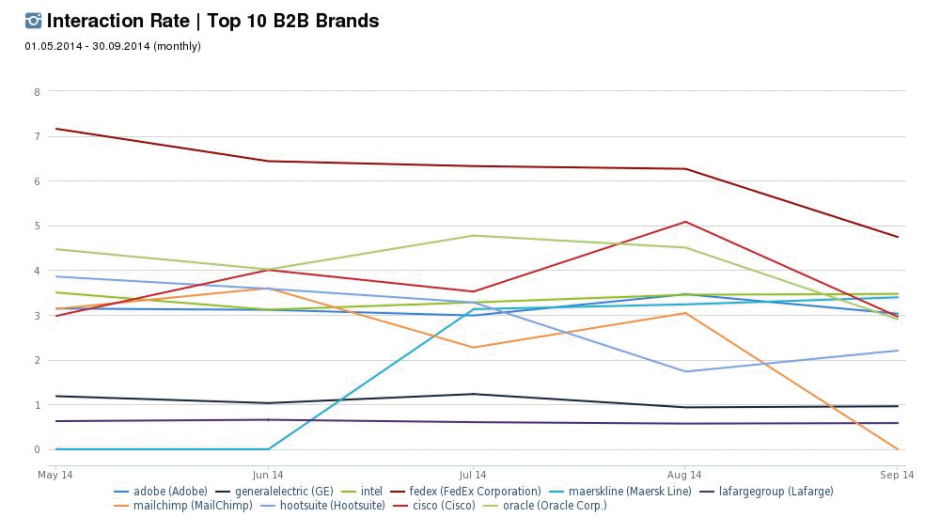
The table of Interaction Rates of the B2B brands in 2017 looks quite different. This might be due to the smaller amount of posts and the growth in the platform – the overflow of content decreases the value of individual posts.
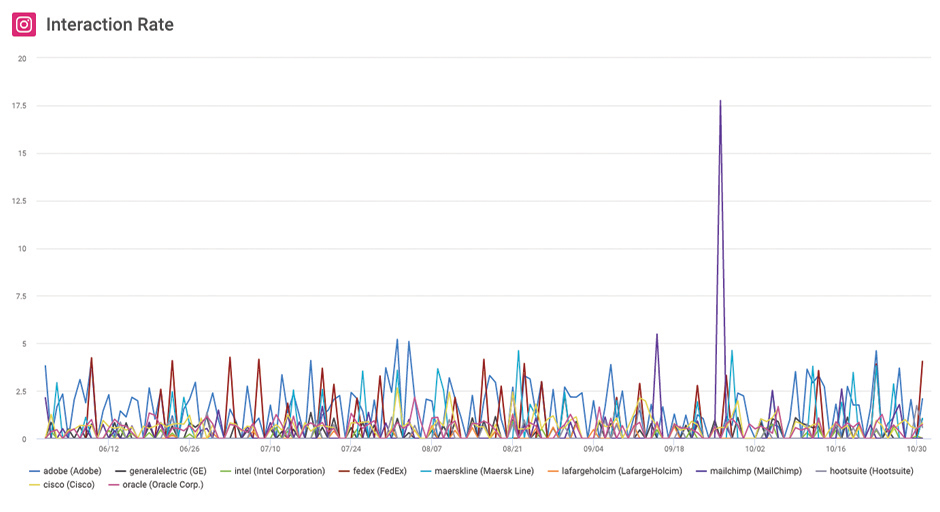
Whether the reason is in the amount of posts or the development of Instagram, the metric gives direct feedback on the engagement, it is dropping. Mailchimp put an effort on their launch of Google remarketing Ads and it paid off in terms of engagement. Otherwise Adobe Fedex and Maersk Line are creating relatively high interaction rates.
Three Year’s Development
At the time of writing the original post – in 2014 – Instagram had 200 million daily active users. We wrote that it is here to stay and that was definitely true. Today Instagram has over 800 million monthly active users and business seems to be blooming there.
Therefore, we give the same piece of advice for B2B brands as we did in 2014 – don’t miss out on social media. B2B brands need the same social media presence as any other businesses, Instagram is a platform for any size B2B brands as well as it is for B2C businesses.
Stories feature and different types of uploads give opportunities to showcase variety of sides of any brand. Storyselling and behind-the-scenes-strategy is easy to carry out on Instagram. Introduce your business and the people behind it in the Stories and give product or service updates in the posts. Mailchimp’s interaction rate peaked because they introduced a new product feature in a fun and creative way on instagram.
The top 10 B2B brands on Instagram has definitely stood the test of time. They are great examples of how to utilize Instagram for a B2B brand. If you are still looking for the best way to promote your brand on Instagram, take a look at Instagram analytics or read our in-depth article on Instagram measurement.
Related Articles
Instagram Analytics - How to measure?!
How to Ace your Instagram Content
Instagram Story Analytics - Our in-depth article!
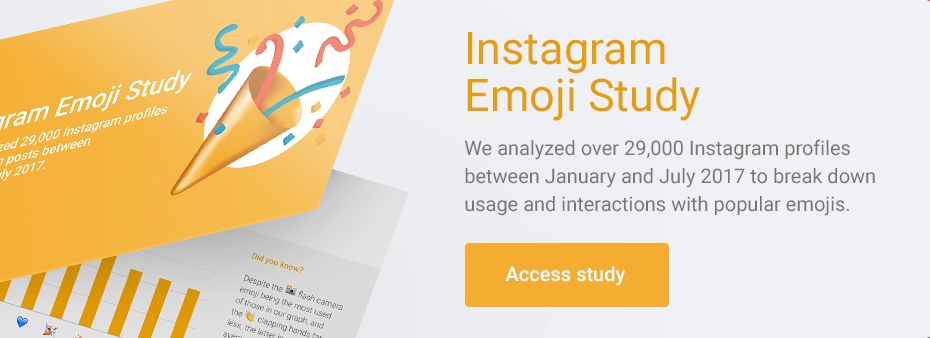

Join the conversation. Leave us a comment below!